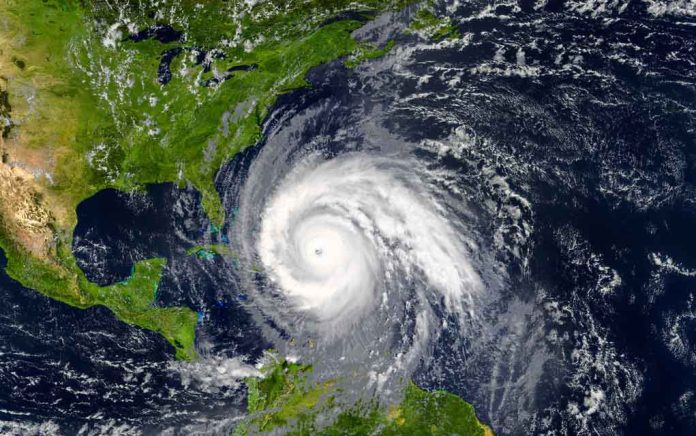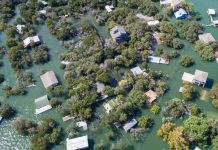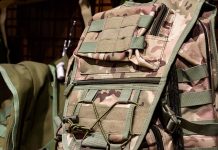
You’ve been watching the news and know there is a hurricane en route, but the sky looks clear from your house. You might feel like you have nothing to worry about, but circumstances can change in just a few hours and this is the best time to take some last-minute precautions.
Hurricanes are no joke and they can do serious damage long before they hit your area in full force. It’s best to be prepared ahead of time because once the wind and rain start heading your way, preparation time has largely passed.
Plan for Hurricane Season
If you live in a hurricane zone, it’s best to stay prepared at all times. If you feel like you are already prepared, it still pays to review the checklist and make updates as needed.
- Review Insurance: If you live in a hurricane zone, you probably already have insurance that covers hurricane damage. It still pays to review your policy from time to time to make sure you have adequate coverage. The value of your home and what’s in it can change drastically over the years and you need to make sure your coverage matches your equity and the contents of your home.
- Plan for Blackouts: Even if the hurricane doesn’t hit your neighborhood, it could take out power in your area as it hits others nearby. Plan for blackouts by ensuring you have fresh water, an alternate power supply, non-perishable foods, a first aid kit and medications, proper storage for medications, alternate shelter, and extra clothing, among other things. Keep these supplies separate so they are ready to go if you need to evacuate or hole up in a small area of your home.
- Secure the Home: There is a lot you can do to help prevent damage to your home as much as possible. Install shutters that close to protect your windows from high winds and debris. When building a home, opt for underground electrical lines rather than overhead ones. Make sure hurricane straps are installed to secure your home and other buildings to the ground. Consider installing a safe room that can protect you even if parts of your house are not intact when the storm is over. Add a backup generator and other alternate power options for when you run out of gas for the generator.
- Practice, Practice and Practice Some More: Whether you’re the only person in your home or you have a large family, it pays to practice what you would do in the event of an emergency… hurricane or otherwise. Each member of the household should have dedicated responsibilities and also plan to play a backup role in case a member of the team is injured. Practice going through the motions of different scenarios so that when the time comes, no one has to think about what to do, but reacts based on the plan and practice.
When the Hurricane Is On Its Way
So, you’ve got your home as secured on a long-term basis as you can. Now it’s time to do some maintenance to get ready for the oncoming hurricane. Winds and flooding are some of the most dangerous parts of a hurricane, so plan ahead for them.
- Secure the Yard: Remember, you’re trying to protect your home from winds and flooding. If possible, surround your home with sandbags or a ditch to redirect the water. Trim the branches of trees and shrubs to prevent them from becoming flying debris. Clear gutters to help redirect water. Bring in any decor, vehicles or other equipment that may be outside.
- Prepare Windows and Doors: Close the shutters or use plywood to cover the windows. This helps protect them from flying debris and high winds. Going from one side to the other, apply tape over the windows as well, creating a star pattern on the windows. This won’t prevent them from breaking, but it will help keep the broken glass from flying around the house. Close and lock all exterior doors, and apply bracing to all closed doors to keep them secure.
- Protect Items From Flooding: Be sure to move essential items to high shelves, especially in basements. Secure all chemicals to prevent them from spilling into any floodwaters.
- Secure a Space: As you planned for hurricanes, you should have designated an area in the house where your household would stay together until the hurricane passed. Be sure to move water, food, medication, first aid supplies, alternate energy sources, radios with batteries, clothing and other supplies to this area. Make sure the window, if applicable, is covered and you have something in place to brace the door once inside.
- Plan for Separation: In the event that your household becomes separated, have a plan in place for somewhere to meet outside the household. Then, use a permanent marker to write contact information on children, pets, and those with special needs. This way, if they do become lost, it will be easier to get in contact with you or know where they should be taken. Be sure to include important medical information.
- Update Documents: Keep a digital record of your documents and other important information, but be sure to update it before the hurricane hits. Store your information on a secure cloud so that you can access it from anywhere once the hurricane is over. This includes information for identification purposes, insurance records, health information and financial records.
Lock Down
Once everything is secure, take the household into lockdown mode and come out when local authorities have given the all-clear. If your area is hit directly by the hurricane, there may come a point in time when the winds let up, the rain clears and the area is calm. Don’t be fooled into coming out of safety. You could be in the eye of the storm and likely to be right back in the throes of it in a matter of minutes or even seconds. Stay inside… otherwise, you risk putting yourself in imminent danger after the eye passes.
While in lockdown, plan for the worst. The hurricane isn’t likely to last in your area for days at a time, but that doesn’t mean you won’t need to survive on your own for days. Your food, water, and medication supplies should have been planned to be enough to get you through a minimum of three days, if not more.
Ration accordingly rather than consuming everything at once. Oddly enough, bringing in things like games and books for entertainment can help you avoid going over your rations, as they help keep the boredom at bay that might otherwise have you reaching for a snack.
Listen to Local Authorities
No matter how secure you think your home is or how well you have planned ahead, sometimes the best thing you can do is just get out of the area. If and when you hear an order to evacuate, trust your local authorities to have your safety in mind. Quickly gather your supplies and evacuate the area using a pre-planned evacuation route or whatever route the authorities tell you to take.
Remember, nothing in your home is worth more than the lives at stake and in any case, if your home is in the path, the time for planning to save it has already passed.
Copyright 2022, TacticalNews.com



















